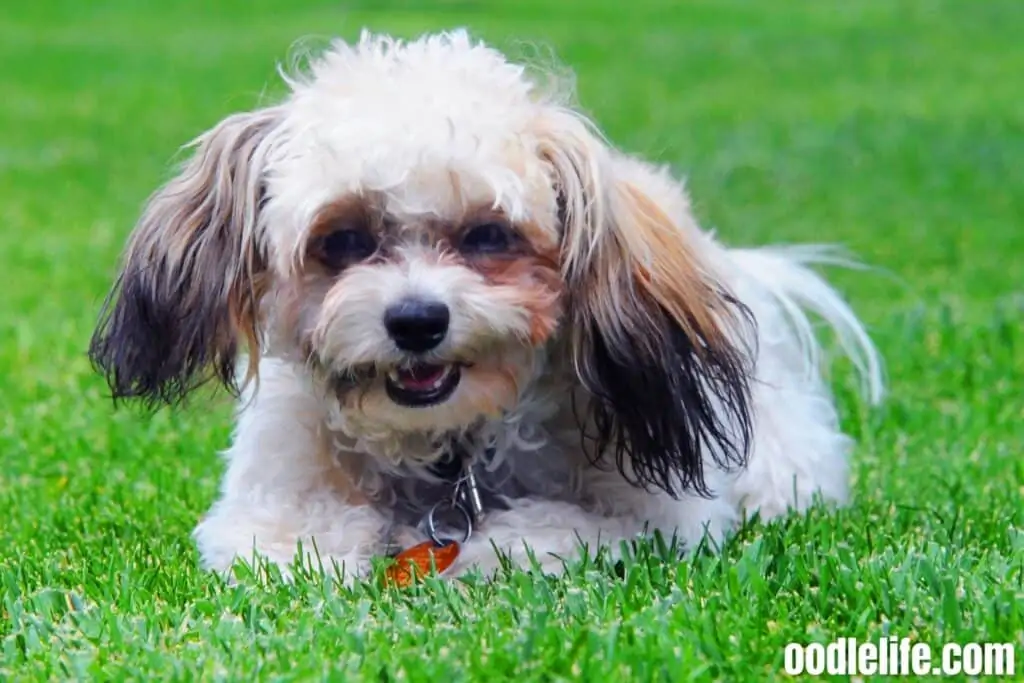Why Is My Dog So Clingy All of a Sudden?
Being wanted by your dog feels great. But if your dog excessively wants you so much that he starts putting his body in front of you to block your path as you walk and displaying other clinging behaviors, it’s time to assess the situation.

Are you wondering why is my dog so clingy all of a sudden? If so, several reasons could explain the onset of this behavior. I’ll walk you through what they are and how to cope with them.
Understanding the Clingy Nature of Dogs
It’s no secret that dogs can have attachment bonds with their owners. Study after study shows that such bonds help a dog feel secure, especially if there’s an event they feel threatened by.
Just like humans, a dog’s behavior can change as he ages and learns new habits. So, if you used to joke that your dog is like a cat, but he suddenly starts getting extra attached to you, there’s likely a reason for it.
An environmental change, a female in heat, boredom, and underlying health problems are all reasons that your dog could become clingy.
Why Is My Dog So Clingy All of a Sudden?
Are you confused why your normally independent dog won’t leave your side? Below are some of the most common explanations for it.

1. You Changed Your Dog’s Environment
Dogs love routine, so they’ll likely feel insecure when they’re in a new environment. Therefore, they’ll cope with this by sticking closer beside you until they deem it’s a safe area.
It doesn’t even take a significant environmental change to make a dog clingy, such as moving homes. Instead, it could be a change within their current home, such as a new pet or home remodel. To help your dog manage change, have patience and soothingly talk to him as you show him the changes.
2. Boredom
Sometimes, boredom is reason enough for a dog to become clingy; if they get a reaction out of you, their day becomes more interesting.
To keep your dog from being clingy due to boredom, make sure he has space to play. He should always have access to toys, and you can routinely rotate the toys you give him. That way, his old toys will feel like new.
3. Your Dog Is Uneasy with Strangers
Depending on their breed and past, some dogs immediately become timid and clingy regardless of the stranger they’re around. In other cases, your dog may become clingy only with strangers that they believe are a threat.
Assuming that there isn’t an intruder in your home, having a clingy dog around strangers can pose a potential issue if that stranger reaches out to pet your dog; every year, hundreds of thousands of people visit the hospital as a result of a dog bite.
Of course, clingy behavior and dog bites don’t always go hand in hand. However, it’s important to calmly and gradually introduce a timid dog to a stranger.

4. Dementia Is Setting In
It’s a sad reality that dogs get Canine Cognitive Dysfunction Syndrome (CCDS), which is the equivalent of dementia in humans. Dogs with CCDS become disoriented easily. As a result, they may become clingy to their owners (or someone they believe is their owner).
If you have an older dog who suddenly becomes clingy, I recommend bringing him to the vet. If they diagnose your dog with CCDS, they may prescribe him a medication that helps reduce the progression of the disease.
5. Your Dog is in Heat
Clingy females in heat is a temporary situation; it’s a common occurrence, as they seek comfort from their owners. Signs that your dog is in heat include:
- Peeing frequently
- Swollen vulva
- Chasing after male dogs
6. Your Dog Is Pregnant
Or, perhaps more precisely than pregnancy, your dog may become clingier when she’s on the brink of giving birth. Female dogs often find comfort being near their owners as they prepare to give birth.
If your dog is pregnant and becomes clingy, make sure to provide her with a comfortable space to nest. Aside from that, give her the comfort she’s asking for and let her be a little clingy—she deserves it.
7. It’s a Health Symptom
If your dog isn’t feeling well, he might turn to you for comfort and help. As a result, it could feel that he’s suddenly become clinging.
There’s no particular illness that may cause a dog to be clingier than another. In fact, some dogs become more standoffish when they’re sick.
So, it’s up to you to assess your dog’s state. Does he appear lethargic? Is he running a fever? If you notice any signs that your dog isn’t feeling well, it’s time to make a trip to the vet.

8. Separation Anxiety
I put this last because separation anxiety and clinginess go hand in hand, but they’re not the same—separation anxiety happens when you’re not home. Clinginess can only occur when you’re present.
However, a dog suffering from separation anxiety usually doesn’t snap back to a clean emotional state when you walk in the door. Instead, he’ll likely jump all over you in a happy, panicked way and remain at your side until he’s convinced that you’re not leaving anytime soon.
Should I Be Worried If My Dog Is Clingy?
Often, dogs become clingy because of something physical in their environment, such as a change in routine from having a new baby in the family or being uneasy around a stranger.
However, sometimes clinginess can be a sign of dog dementia or a health issue. Therefore, if your dog becomes clingy while simultaneously acting like he’s not feeling well, you should call your veterinarian.
How to Stop a Dog From Being Clingy
Assuming that your dog’s clinginess isn’t because of a health reason, below are some strategies you can use to help your dog become less clingy.
1. Utilize Distraction
The chances of your dog becoming clingy are higher if he’s bored. Therefore, try to stimulate his mind by giving him toys that require him to think. An excellent example is a toy that you can hide a treat in.
2. Get Him Outside
Exercise is critical for a clingy dog. The more you can wear your dog out through fun time at the dog park, long walks, and a rigorous round of playing ball, the less likely your dog is to cling to your side when you’re home.

3. Get Your Dog Used to Different Movements
If the kitchen equates to your dog always getting a meal or a treat, he’s likely going to cling to you when you’re there. Likewise, any place that your dog expects you to perform a particular behavior that interests him will result in more clinginess. Therefore, try doing opposite behaviors in these areas so that your dog becomes desensitized to your movement.
4. Give Your Dog His Own Space
Designing a special place in your home that’s a little dog oasis will encourage your clingy dog to spend time there instead of with you. Make sure to fill his space with a comfy bed and his favorite toys. Teach your dog to go there when he gets too clingy, and reward him when he listens.
Frequently Asked Questions About Clingy Dogs
Are you still curious about your dog’s clinginess? Below are some common answers to questions that people have about clingy dogs.
Is it normal for a dog to be clingy?
It’s not normal for a dog to be clingy without there being a reason for it. In some cases, your dog may simply feel bored. Female dogs sometimes become clingy when they’re in heat or about to give birth. Other times, your dog might be clingy because he’s not feeling well.
Should I let my dog be clingy?
Whether you should let your dog be clingy comes down to personal preference and how temporary the situation is. For example, if your pregnant female dog becomes clingy before giving birth, you should let her do so. However, if your dog is clingy out of boredom, you need to give him resources to stimulate his mind.
When should I worry about my clingy dog?
If your dog is showing signs of illness in addition to being clingy, you should worry about him. The health symptoms can vary, including but not limited to vomiting, diarrhea, fever, and forgetfulness.
Some of the most common questions I get about clingy dogs are designer breeds like Cockapoos, Labradoodles and Goldendoodles. This is because they are highly social animals, not anything to do with the cross mix.